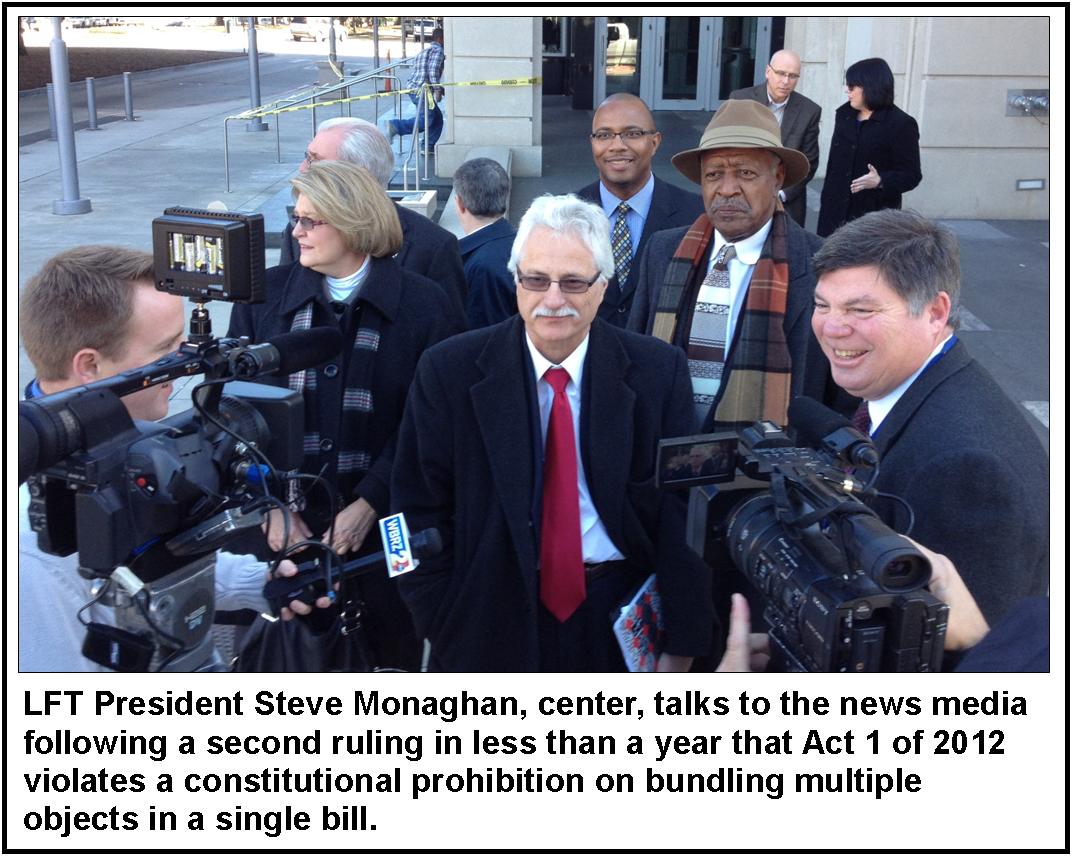Bogus reform group touts vouchers again
(Baton Rouge – January 14, 2014) To no one’s surprise, an organization dedicated to promoting school vouchers for private and religious schools is heaping praise on Louisiana’s voucher scheme.
The Thomas B. Fordham Institute today released a review of vouchers across the United States, and lauded Louisiana as a “national model when it comes to transparency and accountability.” It marked the second year that Fordham has issued a report supporting Louisiana’s voucher law.
Louisiana Federation of Teachers President Steve Monaghan characterized the Fordham Institute as a right wing storefront that exists as a shill for vouchers.
“Obviously, Fordham did not read the Louisiana Legislative Auditor’s review of the state voucher program,” Monaghan said. “They would have known that just a handful of the 118 voucher schools reported their performance data to the state.”
In addition, Monaghan said, Legislative Auditor Daryl Purpera said that only three of the 118 schools tracked their public dollars separately from private funds, and that one of those overbilled the state by nearly $400,000. That school was subsequently excluded from the voucher program.
“A model for transparency and accountability? It is simply astounding that anyone can hold such a dismal record up as a model,” Monaghan said.
In what it described as a “policy toolkit,” Fordham suggested three objectives that define accountability for voucher schools:
All voucher students should participate in state assessments.
The result of those assessments should be publicly disclosed except when a school has so few voucher students that disclosure would identify individual students.
A “sliding scale” should be used when acting on test results, meaning that “private schools that derive little of their income from vouchers should be largely left alone.”
Despite the legislative auditor’s findings, the Fordham survey concluded that Louisiana has one of four voucher schemes “that have generally gotten these policies right.” Others are in Indiana, Cleveland and Milwaukee.
But Monaghan said that even the metrics suggested by Fordham’s toolkit are flawed.
“Requiring all students who receive vouchers to participate in state assessments is not the same as requiring that these assessments have the same high stakes consequences as they do for public school students,” Monaghan said.
As far as the second recommendation is concerned, Monaghan said that voucher schools have figured out how to game the system by keeping numbers low in certain grades and subjects.
The LFT president said the idea of a “sliding scale” is absurd. “If they’re in for a dime’s worth of state dollars, they should be in for the full dollar of state accountability,” he said.
Holding voucher schools unaccountable just because they have few students is an invitation for abuse and an insult to public education and every classroom teacher, Monaghan said.
– See more at: http://la.aft.org/press/bogus-reform-group-touts-vouchers-again#sthash.iO4uUYYG.dpuf













